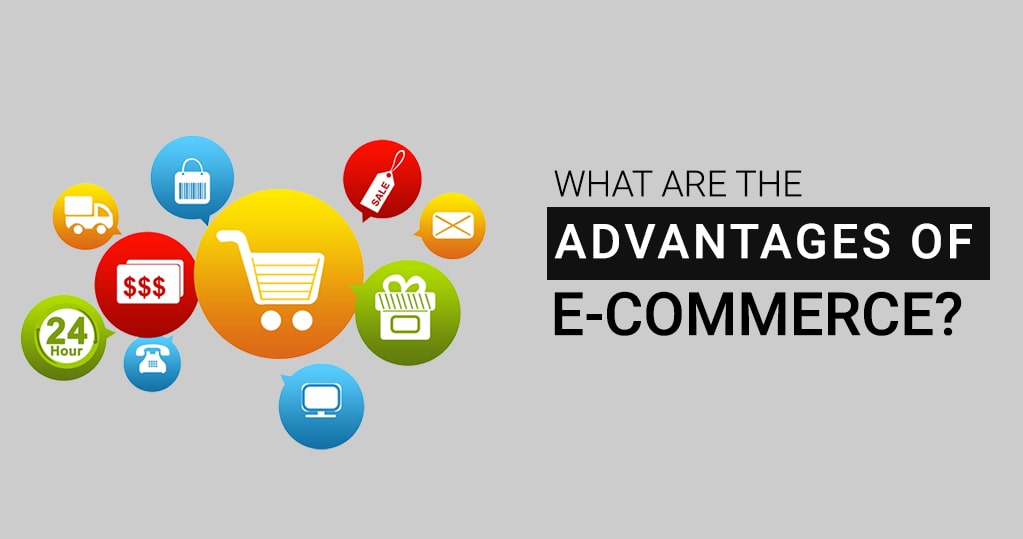The Benefits of E-commerce
In today’s digital age, e-commerce has revolutionized the way businesses operate and consumers shop. The convenience and accessibility of online shopping have led to a significant shift in consumer behavior, making e-commerce a vital aspect of any successful business strategy. In this article, we delve into the numerous benefits that e-commerce offers, highlighting its impact on businesses, consumers, and the global economy.
Increased Reach and Global Expansion
E-commerce breaks down geographical barriers, allowing businesses to reach customers beyond their local markets. Unlike traditional brick-and-mortar stores, an online presence enables businesses to operate 24/7, catering to customers from different time zones. With the right marketing strategies and search engine optimization techniques, businesses can expand their customer base and tap into new markets, both domestically and internationally.
Lower Costs and Higher Profit Margins
One of the most significant advantages of e-commerce is its ability to reduce costs and increase profit margins. Unlike physical stores that require expensive rent, utilities, and staff, setting up an online store involves significantly lower overhead costs. Additionally, e-commerce allows businesses to automate various processes, such as inventory management and order fulfillment, further reducing operational expenses. These cost savings directly contribute to higher profit margins, allowing businesses to reinvest in growth and innovation.
Improved Customer Experience
E-commerce provides a seamless and personalized shopping experience for customers. With advanced analytics and customer tracking tools, businesses can gather valuable data on customer preferences and behavior. This data can be utilized to offer personalized product recommendations, targeted promotions, and a tailored shopping experience. Furthermore, e-commerce platforms often provide customer reviews and ratings, enabling shoppers to make informed purchasing decisions, and ultimately enhancing customer satisfaction and loyalty.
Convenience and Accessibility
Online shopping offers unparalleled convenience and accessibility for consumers. With just a few clicks, customers can browse a wide range of products, compare prices, and make purchases from the comfort of their own homes or on the go. E-commerce eliminates the need for physical travel, long queues, and limited store hours, providing a hassle-free shopping experience. Moreover, e-commerce offers options like doorstep delivery and flexible return policies, further enhancing customer convenience.
Increased Sales and Revenue
E-commerce opens up new avenues for businesses to generate sales and revenue. By leveraging digital marketing strategies, businesses can attract a larger audience, increase brand visibility, and drive traffic to their online stores. Moreover, e-commerce platforms often integrate with social media channels, allowing businesses to tap into the immense potential of social commerce. The ability to target specific customer segments and run targeted advertising campaigns contributes to increased sales and revenue growth.
Efficient Inventory Management
Effective inventory management is crucial for businesses to meet customer demands while minimizing costs. E-commerce platforms offer robust inventory management systems that enable businesses to track stock levels in real-time, automate reordering processes, and prevent stockouts or overstocking. By optimizing inventory management, businesses can reduce carrying costs, improve order fulfillment efficiency, and ensure customer satisfaction through timely deliveries.
Environmental Sustainability
E-commerce has the potential to contribute to a more sustainable future. By reducing the need for physical stores and optimizing supply chain processes, e-commerce helps minimize carbon emissions associated with transportation and energy consumption. Additionally, online shopping reduces the demand for single-use packaging and paper receipts, promoting eco-friendly practices. As businesses and consumers embrace e-commerce, the environmental impact of traditional retail can be significantly reduced.

E-commerce offers a multitude of benefits for businesses, consumers, and the environment. From increased reach and global expansion to lower costs and improved customer experiences, the advantages of e-commerce are undeniable. By embracing e-commerce and implementing effective digital marketing strategies, businesses can thrive in today’s competitive landscape. As technology continues to evolve, e-commerce will undoubtedly play an even more significant role in shaping the future of commerce.
Frequently Asked Questions about the Benefits of E-commerce
1. What is e-commerce?
E-commerce refers to the buying and selling of goods and services over the internet.
2. Internet the advantages of e-commerce?
E-commerce offers several benefits such as convenience, global reach, cost savings, and increased customer base.
3. How does e-commerce improve convenience?
E-commerce allows customers to shop anytime and anywhere, eliminating the need to visit physical stores. It offers 24/7 accessibility and saves time and effort.
4. What is the global reach of e-commerce?
E-commerce enables businesses to reach customers worldwide, breaking geographical barriers and expanding their market reach.
5. How does e-commerce help in cost savings?
E-commerce eliminates the need for physical stores, resulting in reduced overhead costs such as rent, utilities, and staffing. It also allows for efficient inventory management and automated processes.
6. How does e-commerce increase the customer base?
E-commerce provides businesses with an opportunity to reach a larger audience and attract customers from different locations. It allows for personalized marketing and targeted advertising.
7. Can e-commerce benefit small businesses?
Absolutely! E-commerce levels the playing field for small businesses by providing them with a cost-effective platform to compete with larger enterprises. It allows them to reach a wider customer base without significant financial investments.
8. Is e-commerce secure?
Yes, e-commerce platforms implement various security measures such as encryption, secure payment gateways, and customer data protection to ensure safe online transactions.
9. How does e-commerce enhance customer experience?
E-commerce offers personalized shopping experiences, easy product comparisons, customer reviews, and quick customer support, enhancing overall satisfaction.
10. Can e-commerce help in business growth?
Definitely! E-commerce provides businesses with opportunities for expansion, increased sales, and scalability. It allows for diversification and reaching new markets.




